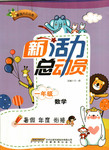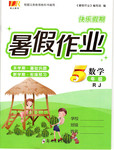
�� Isn��t watching birds interesting? �� . Nothing else is more interesting, I think.
A. No, it isn��t B. No, it is C. Yes, it isn��t D. Yes, it is
D �����������⣺��������û��Ȥζ��-�ǵģ����С�����Ϊû��ʲô�������Ȥ���ˡ�����һ�����ʾ估�ش𡣸���Nothing else is more interesting, I think.����֪�ǿ϶��ش𣬿��ų�A����BC����ǰ��ì�ܣ�ҲҪ�ų�����Ͼ�����ᄈ����֪ѡD�� �»����ܶ�Ա��ϵ�д�
�»����ܶ�Ա��ϵ�д� ����ͼ����ּ��������ҵ֣�ݴ�ѧ������ϵ�д�
����ͼ����ּ��������ҵ֣�ݴ�ѧ������ϵ�д�
| �꼶 | ���пγ� | �꼶 | ���пγ� |
| ��һ | ��һ��ѿγ��Ƽ��� | ��һ | ��һ��ѿγ��Ƽ��� |
| �߶� | �߶���ѿγ��Ƽ��� | ���� | ������ѿγ��Ƽ��� |
| ���� | ������ѿγ��Ƽ��� | ���� | ������ѿγ��Ƽ��� |
��Ŀ������Ӣ�� ��Դ���˽̰�2017-2018ѧ�����꼶Ӣ����Unit 5��Ԫ��� ���ͣ���ѡ��
-- do you like pandas? --Because they are cute.
A. How B. What C. Why D. Where
C �����������⣺-��Ϊʲôϲ����è��-��Ϊ���Ƿdz��ɰ���How ��������Σ�Whatʲô��WhyΪʲô��Where �������������Ļش�Because����֪�������ʵ���ϲ����è��ԭ��ѡC���鿴�𰸺ͽ���>>
��Ŀ������Ӣ�� ��Դ��2018�괺���꼶Ӣ���²�ר��ѵ�����˽̰棩���ʻ�רѵ ���ͣ���ѡ��
I want to ________ in front of my birthday cake and I hope it can come true.
A. make a wish B. take a shower
C. make friends D. take a walk
A �����������⣺���������յ���ǰ����Ը����ϣ������ʵ�֡�A. make a wish ����Ը���� B. take a showerϴ�裻C. make friends �����ѣ� D. take a walkɢ�������ݾ����ѡA�鿴�𰸺ͽ���>>
��Ŀ������Ӣ�� ��Դ��2018�괺���꼶Ӣ���²�ר��ѵ�����˽̰棩���ʻ�רѵ ���ͣ���ѡ��
This watch is too expensive. I want to buy a(n) ________ one.
A. expensive B. old
C. cheap D. bad
C �����������⣺����̫���ˣ�������һ�����˵�ġ�A. expensive ����ģ� B. old�ϵģ� C. cheap ���˵ģ� D. bad���ģ�����This watch is too expensive��֪������˵ģ���ѡC�鿴�𰸺ͽ���>>
��Ŀ������Ӣ�� ��Դ��ţ�����ְ�8�꼶��unit3��ϰ ���ͣ��Ķ���ѡ
There are many wetlands��ʪ�أ�in China and some of them have become internationally�������Եģ�important wetlands. The Chinese Yellow Sea Wetlands are one example. They are in Yancheng, Jiangsu Province. They are the ideal home for many different kinds of birds and animals. The world��s largest Milu Deer ����¹��Nature Reserve����������is there. More than 700 milu deer live freely there. There are not many red-crowned cranes�������ף�in the world, but every winter you can see some in the Red-Crowned Cranes Nature Reserve in the Yellow Sea Wetlands.
The temperature in the wetlands is usually not too high or too low. There is a lot of rain and sunshine, too. They are really good places for wildlife��Ұ�����. They offer food and home for some special kinds of animals and birds. It is not the only reason why we need to protect wetlands. Wetlands are important because they also prevent����ֹ��floods����ˮ��. But some people want to change the wetlands to make space for farms and buildings. This means there will be less and less space for wildlife.
Luckily, more and more people are beginning to realize����ʶ����the importance of wetlands and wildlife. Every year on February 2nd, the World Wetlands Day, many activities are held to tell people more about wetlands.
1.Which of the following is the ideal home for birds and animals?
A. The Yellow River. B. The wetlands. C. North China. D. Cities in China.
2.What��s the weather like in the wetlands?
A. It��s very hot. B. It��s too cold. C. There��s a lot of snow. D. It rains a lot there.
3.Why are the wetlands good places for wildlife?
A. Wildlife can find food and home there. B. All wildlife can live freely there.
C. There�� re enough friends for them. D. There is enough room for them.
4.What��s the use of the wetlands?
A. To raise(����) more wildlife. B. To prevent floods.
C. To offer lots of food for human beings. D. A and B.
5.Which of the following is Not true?
A. More than 700 milu deer live freely because of the wetlands.
B. We can��t see red-crowned cranes in the Yellow Sea Wetlands.
C. February 2nd is the World Wetlands Day.
D. People are beginning to realize the importance of wetlands.
1.B 2.D 3.A 4.D 5.B ������������������������й��Ļƺ�ʪ��Ϊ����������ʪ�ض���Ұ���������Ҫ�Ժ��ڷ��鷽�����Ҫ���ã����������Ծ�����ʪ�غ�Ұ����� 1.���⣺������һ��������Ͷ���������������ϸ�������⡣����They are the ideal home for many different kinds of birds and an...�鿴�𰸺ͽ���>>
��Ŀ������Ӣ�� ��Դ��ţ�����ְ�8�꼶��unit3��ϰ ���ͣ���ѡ��
At last, he _________ at the train station on time.
A. got B. got to C. reached D. arrived
D �����������⣺�����ʱ�����˻�վ�����鶯�ʱ����⡣A. got�õ���B. got to�����ӵص����ʣ�C. reached������ﶯ�ʣ�D. arrived�����atһ��ӵص����ʣ���arrive at�����ݾ�����ᄈ����֪ѡD���鿴�𰸺ͽ���>>
��Ŀ������Ӣ�� ��Դ��ţ�����ְ�8�꼶��unit3��ϰ ���ͣ���ѡ��
Look! There is one-eyed elephant near the river. On elephant is a monkey.
A. an; the B. a; the C. a; an D. the; an
B �����������⣺�����ӱ���һֻ���۴���������ֻ���ӡ�����ڴʱ����⡣a��an���Dz����ڴʣ�����ָ��a���ڸ������ؿ�ͷ�ĵ���ǰ��an����Ԫ�����ؿ�ͷ�ĵ���ǰ��the�Ƕ��ڴʣ�����ָ������ǰһ��one-eyed�Ը������ؿ�ͷ������a����һ��elephantָ������һ���ᵽ�ģ����ö��ڴ�the���Ρ����ݾ�����ᄈ����֪ѡB���鿴�𰸺ͽ���>>
��Ŀ������Ӣ�� ��Դ��ţ�����ְ����Unit 3��Ԫ�����Ծ� ���ͣ���ѡ��
When you ___________the City of Suzhou, please call me.
A. get B. arrive to C. reach at D. arrive in
D �����������⣺������������������е�ʱ������Ҵ�绰��get����Dz����ﶯ�ʣ���������to���䣻arrive to���ﲻ�ԣ�arrive�����in��at���䣻reach at��ʽ ����reach�Ǽ��ﶯ�ʣ����治�ý�ʣ�arrive in����ij�ء����ݾ����֪ӦѡD���鿴�𰸺ͽ���>>
��Ŀ������Ӣ�� ��Դ��ţ�����ְ���꼶Ӣ���� Unit4 ����ѡ������ϰ ���ͣ���ѡ��
time you spend using your mobile phones, mistakes you will make in your homework.
A. The less; the fewer B. The fewer; the less C. Fewer; less D. Less; fewer
A �����������⣺�����ֻ���ʱ��Խ�٣����ڼ�ͥ��ҵ�з��Ĵ����Խ�١���The+�Ƚϼ���the+�Ƚϼ�����ʾ��Խ����Խ���������ų���C,D��less��little�ıȽϼ����������β��������ʣ�fewer��few�ıȽϼ����������ο������ʣ�time�Dz��������ʣ�mistakes�ǿ������ʣ��ʴ�ΪA���鿴�𰸺ͽ���>>
����ʡ������Υ���Ͳ�����Ϣ�ٱ�ƽ̨ | �����к���Ϣ�ٱ�ר�� | ����թƭ�ٱ�ר�� | ����ʷ���������к���Ϣ�ٱ�ר�� | ������Ȩ�ٱ�ר��
Υ���Ͳ�����Ϣ�ٱ��绰��027-86699610 �ٱ����䣺58377363@163.com